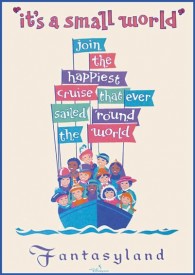No, but Samuel P. Huntington did. Dr. Huntington of "Clash of Civilizations" fame, died back in December of 2008, but his work lives on. As Mark Steyn points out, this Harvard professor of Political Science championed the idea that culture trumps all. Steyn gives us an example of his own:
in Bradford, 75 per cent of Pakistani Britons are married to their first cousins. As to the seductive assimilatory charms of time, 30 years ago the percentage was half that. A victory for culture over economics. (Mark Steyn)The Australian has an interesting article on this great man who foresaw this current age of terrorism back in 1993:
The Clash of Civilizations was a hard-headed look at what political scientists had traditionally dismissed as a soft subject: culture. Originating as a 1993 article in the policy journal Foreign Affairs, and published three years later as a book, it argued that the key sources of post-Cold War conflicts would not be national or ideological but cultural. It was Huntington's riposte to those who thought the fall of communism meant the universal triumph of Western values. The West's arrogance about the universality of its own culture would blind it to the ascent of "challenger civilisations", particularly Islam and China.
Shot through with cautions about Western decline, the book counsels Europe and the US to unite: "The prudent course of the West is not to attempt to stop the shift in power, but to learn to navigate the shallows, to endure the miseries, moderate its ventures, and safeguard its culture." Exporting American pop culture and trainers was easy; exporting values of freedom and democracy far harder.
"Somewhere in the Middle East," Huntington wrote, "a half-dozen young men could well be dressed in jeans, drinking Coke, listening to rap, and between their bows to Mecca, putting together a bomb to blow up an American airliner." (The Australian)
"Brilliant" minds and miscellaneous critics poo-pooed his thesis at the time, but 9/11 and its aftermath brought a sad vindication.
We really are undergoing a clash of civilizations.
To understand Samuel Huntington's Clash of Civilizations, follow these three easy steps. If you care about the future of Western society and culture, it's worth it:
1) Read Huntington's famous essay. It is a scholarly work yet easily readable by ordinary folks. It puts the current global struggle into focus. Unfortunately, it is locked up tight, inaccessible unless you pay a fee to Foreign Affairs Magazine. They should be ashamed of themselves for sequestering such a seminal work. Some Googling can usually find it clandestinely posted somewhere. Even better, go get the book.
2) Scholars and other thinkers often pitted Huntington's thesis against Francis Fukuyama's "End of History." You can read Stanley Kurtz's commentary on the subject at Policy Review.
3) Finally, Professor Fouad Ajami, himself an imminent scholar and brilliant writer, wrote an insightful piece on Huntinton's essay the January after Huntington's death.
Huntington had the integrity and the foresight to see the falseness of a borderless world, a world without differences. (He is one of two great intellectual figures who peered into the heart of things and were not taken in by globalism’s conceit, Bernard Lewis being the other.)
I still harbor doubts about whether the radical Islamists knocking at the gates of Europe, or assaulting it from within, are the bearers of a whole civilization. They flee the burning grounds of Islam, but carry the fire with them. They are “nowhere men,” children of the frontier between Islam and the West, belonging to neither. If anything, they are a testament to the failure of modern Islam to provide for its own and to hold the fidelities of the young.
More ominously perhaps, there ran through Huntington’s pages an anxiety about the will and the coherence of the West — openly stated at times, made by allusions throughout. The ramparts of the West are not carefully monitored and defended, Huntington feared. Islam will remain Islam, he worried, but it is “dubious” whether the West will remain true to itself and its mission. Clearly, commerce has not delivered us out of history’s passions, the World Wide Web has not cast aside blood and kin and faith. It is no fault of Samuel Huntington’s that we have not heeded his darker, and possibly truer, vision. (Fouad Ajami - The Clash)I pray we at least pause to contemplate Dr. Huntington's thesis. A self-ashamed society that stands for nothing will fall for anything; and angry fire-bearers from the East really could burn it all down.




